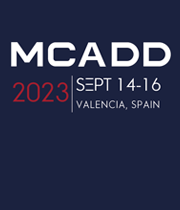Combinatorial Chemistry
Combinatorial chemistry entails the systematic, repetitive, and covalent bonding of numerous "building blocks" to produce a vast number of structurally diverse molecules, referred to as a chemical library. The compounds in the chemical library can be examined for individual interactions with biological targets of interest once they've been created. The presence of positive chemicals can therefore be determined either directly (in position-addressable libraries) or indirectly (through decoding) (using genetic or chemical means). In the mid-1980s, Geysen's multi-pin technology and Houghten's tea-bag technology were used to synthesise hundreds of thousands of peptides on solid support concurrently, establishing the notion of combinatorial chemistry. It has generated a significant number of targeted molecules for testing, and the development of high throughput screening techniques has automated the screening process, allowing for the execution of a larger number of biological tests. All of this has resulted in a reduction in the period from discovery to market from 10-14 years to 5-8 years. Several combinatorial methods have been developed to create focused or diverse chemical libraries with a wide range of linear or macrocyclic chemical molecules, such as non-peptide oligomers, peptides, peptidomimetics, small molecules, and natural product-like organic molecules. Each combinatorial method uses a different high-throughput screening and encoding mechanism.
- ADMET/PK/PD methodologies and screening
- Assay design, development, miniaturization and comparison
- Biomarkers
- Bipharmaceutical studies of Natural products
- Chemical library design and chemical diversity
- Chemo/bio-informatics, data mining
- Combinatorial chemistry (e.g. small molecules, peptide, nucleic acid or phage display libraries)
- Compound management
- Current & Future Institutional Research Profile
- Data management and statistical analysis
- Drug repurposing
- High Throughput Screening
- High throughput/high content/in silico screening and associated technologies
- Label-free detection technologies and applications
- Laboratory automation, robotics, microfluidics, signal detection technologies
- Natural Product Analytical Studies
- Natural Products Research (Chemistry, Biology and Pharmacology of Natural Products)
- Patents
- Pharmacognosy
- Probe discovery and development, hit to lead optimization
- Stem cell technologies
- Target identification and validation
- Technology transfer, legal and licensing issues


Title : A qsar survey on tyrosine kinase inhibitors
Atefeh Hajiagha Bozorgi, Faculty of pharmacy, Iran (Islamic Republic of)
Title : Abbott diagnostics: COVID-19 inactivation, nucleocapsid antigen automated immunoassay development, and variant testing for automated and lateral flow assays binaxnow™ and panbio™
Philip M Hemken, Abbott Laboratories, United States
Title : Synthesis, antibacterial activity of 3-amino 5-methoxyl-2-methyl quinazolin-4(3H)-one an amino-6-methoxyl-2-methyl of 4H–benzo[d] [1,3]–oxazine–4–one
Osarumwense Peter Osarodion, Ondo State University of Sciences and Technology, Nigeria
Title : Tackling mycobacterium tuberculosis resistance with tailored isatin-pyrimidine hybrids enoyl acyl carrier protein reductase (Inha)
Amgad Albohy, The British University in Egypt (BUE), Egypt
Title : Transition metal complexes/Organometallic compounfs as anticancer drugs
Prakash kinthda, Nims university,jaipur,rajasthan, India
Title : New n-ribosides and n-mannosides of rhodanine derivatives with anticancer activity on leukaemia cell line: Design, synthesis, dft and molecular modelling studies
Ahmed, Kafrelsheikh University, Egypt